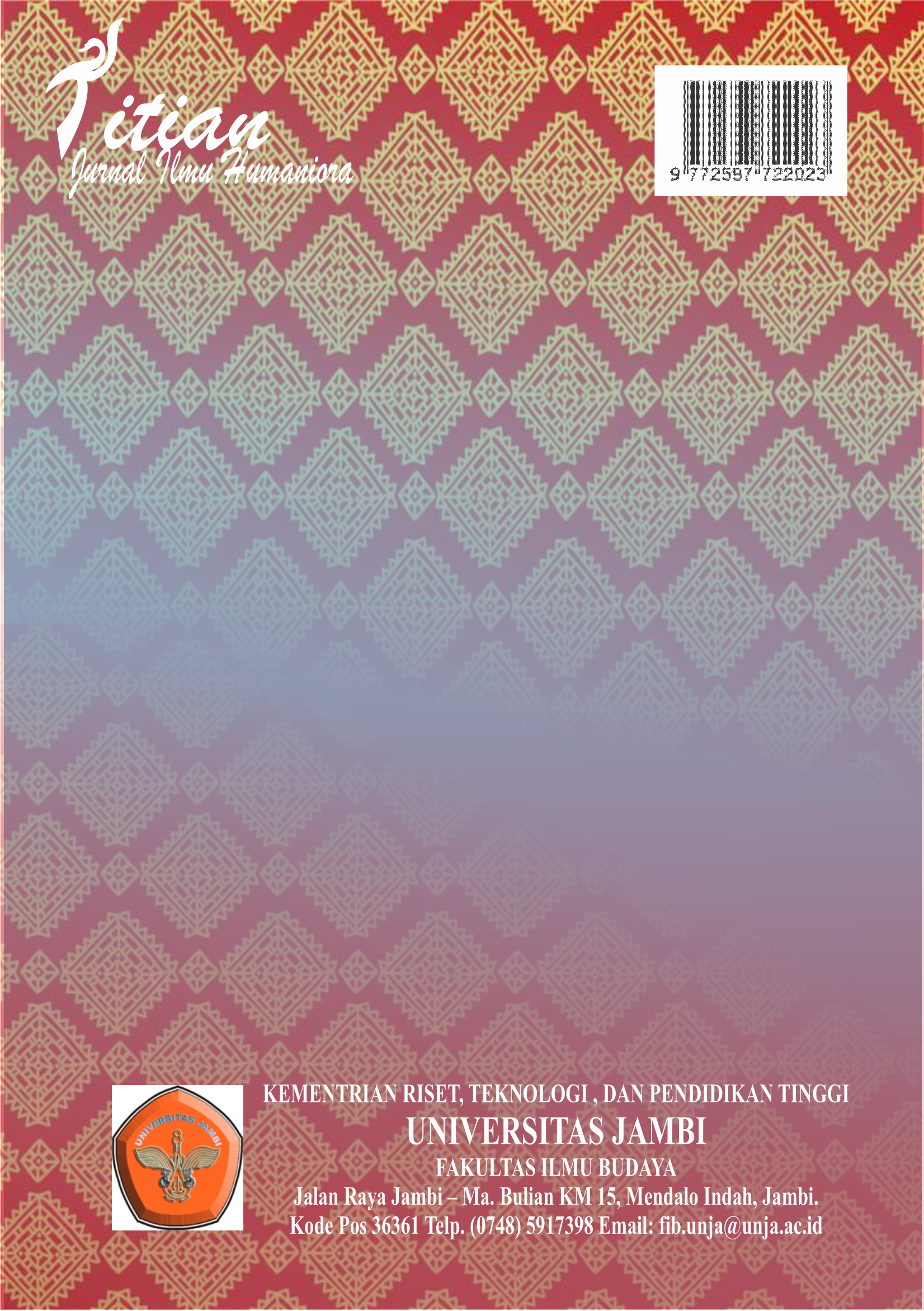Cognitive Autocracy of the Object as a Theoretical Presupposition of Foundational Analyses in Epistemology: A Historical Review
DOI:
https://doi.org/10.22437/titian.v6i2.21028Kata Kunci:
Cognitive Autocracy, Behavioural Constructivism, Cognitive Science, Ontological ConvenienceAbstrak
A historical review of epistemology was carried out. The objective of the study was to demonstrate through historical data that the underlying presupposition that rules epistemological analysis is the cognitive autocracy of the object. To achieve this objective, the method of content analysis with a special focus on the traditional historical method was adopted for the study. With the application of the historical method to the data of study, it was easy to demonstrate the validity of the thesis that epistemology is bedevilled by the cognitive autocracy of the object. It was concluded that the problem associated with the presupposition could be obviated if behavioural constructivism as a new approach to epistemology could be switched for rational reductionism.
Unduhan
Referensi
Akpan, Etorobong Godwin. (2017). Analytic determination of values on the truth table: possible implications. AFRREV STECH: An International Journal of Science and Technology, 6(1), 74 – 87. https://doi.org/10.4314/stech.v6i1.6
Akpan, Etorobong Godwin. (2022). On The Object of Epistemology as an Academic Research Programme. SHE Journal aims to promote interdisciplinary studies in social sciences, Humanities and Education, 3(3), 366-371. http://doi.org/10.25273/she.v3i3.13946
Copleston, F. (1964). A History of Philosophy. New York: Image Books.
Curran, J. (1996). How does it go with the Night. The Fountain. (31) Pp.32 – 33.
Gillies, D. (1993). The Philosophy of Science. Cambridge: Basil Blackwell Publisher.
Hume, D. (1965). An Enquiry Concerning Human Understanding. New York: The Liberal Arts.
Kant, I. (1965). Critique of Pure Reason. New York: St. Martin’s Press, 1965.
Klein, P. (1993). “Skepticismâ€. A Companion to Epistemology. Eds. Jonathan Dancy and Earnest Sosa. Massachusetts: Basil Blackwell. Pp.457 – 458.
Lorenz, C. (1994). Historical Knowledge and Historical Reality: A Plea for “Internal Realism.†History and Theory, 33(3), 297–327. https://doi.org/10.2307/2505476
Ozumba, G.O. (2001). A Concise Introduction to Epistemology. Calabar: Ebenezer printing press.
Quine, W.V.O. (1969). Ontological relativity and Other Essays. New York: Columbia University Press.
Quine, W.V.O. (1971). From a Logical Point of View. London: Oxford University Press.
Ruggiero, G. M., Spada, M. M., Caselli, G., & Sassaroli, S. (2018). A Historical and Theoretical Review of Cognitive Behavioral Therapies: From Structural Self-Knowledge to Functional Processes. Journal of rational-emotive and cognitive-behavior therapy: RET, 36(4), 378–403. https://doi.org/10.1007/s10942-018-0292-8
Stumpf, S.E (1982). Socrates to Satre: A History of Philosophy. 3rd ed. New York: McGraw-Hill.
Urry, John R & Keat, R. N. (1975). Social Theory as Science. London: Routledge & Kegan Paul Ltd.
Wittgenstein, L. (1961). Tractutus Logico Philosophicus. London: Rouledge.
Unduhan
Diterbitkan
Cara Mengutip
Terbitan
Bagian
Lisensi
Hak Cipta (c) 2022 Etorobong Godwin Akpan

Artikel ini berlisensiCreative Commons Attribution-ShareAlike 4.0 International License.































